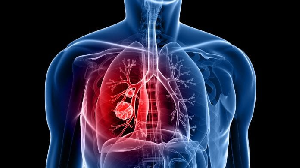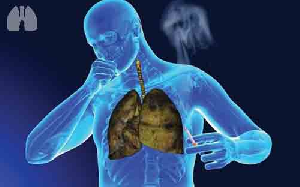
Olivier Burgy, Bruno Crestani, Philippe Bonniaud
European Respiratory Journal 2022 59: 2103146; DOI: 10.1183/13993003.03146-2021
Extract
Idiopathic pulmonary fibrosis (IPF) is a chronic, progressive and fatal lung disease [1]. The biology of IPF is highly complex and not fully elucidated, although many actors and mechanisms have been identified in the past decades [2]. Notably, the reactivation of developmental signalling pathways such as transforming growth factor (TGF)-β or WNT signalling has been repeatedly observed during IPF [3–5]. The seminal role of TGF-β in organ fibrogenesis, and more particularly in pulmonary fibrosis, has been known for more than a quarter of century [6]. Nevertheless, the reasons why these observations have not yet turned into effective therapy in IPF raise questions.
Nestin promotes TGF-β signalling and is a therapeutic target in IPF https://bit.ly/3Km1rEy
Footnotes
-
Conflict of interest: O. Burgy reports a research grant paid to his institution from AstraZeneca. B. Crestani reports grants and non-financial support from Translate Bio, grants and personal fees from Boehringer Ingelheim, Roche and BMS, and personal fees from Apellis, Chiesi, Sanofi, Novartis and AstraZeneca. P. Bonniaud reports research grant paid to his institution from AstraZeneca and receiving support for attending medical and research conferences from Roche, Chiesi, Stallergenes and Sanofi, and travel support and personal fees from Roche, Boehringer Ingelheim, AstraZeneca and Novartis.
- Received December 15, 2021.
- Accepted January 5, 2022.
- Copyright ©The authors 2022. For reproduction rights and permissions contact permissions@ersnet.org














